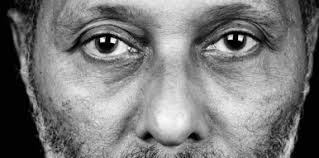SX editor David Scott interviewed by Public Anthropologist on upcoming Stuart Hall biography

International journal Public Anthropologist recently interviewed David Scott, Small Axe editor, on his relationship with Stuart Hall in light of his upcoming biography of the pioneering cultural theorist. Read below for an excerpt of the interview.
Sindre: First of all, David, I am going to cite one of my favorite passages from your own work on the late Stuart Hall (1932-2014). It is a moving tribute that you published already in 2005 in your journal Small Axe, entitled Stuart Hall’s Ethics. What strikes me is that this is in fact poetry. I have actually used it as an epigram in one of my own monographs. You wrote the following there, and this was at a time when Stuart Hall was still alive: “We live in dark times; they are not times that favor forbearance, they do not shelter generosity, they do not encourage receptivity. They are rather obdurate times, cynically, triumphalist and ruthlessly xenophobic times that seem to require new regime of silencing and assimilation. A new regime of prostration, submission and humiliation. Who, looking forward from a generation ago – in the middle of another imperial moment – could have imagined they would be living in a world that looks like this one. But Dark Times, as Hannah Arendt memorably said, need people who can give us illumination, and who calls them forth into the public realm.”
So, in order to talk about beginnings here David, who was your friend Stuart Hall and why does his work matter so much right here, right now?
David: Sindre, you begin with an impossible question. I thought you would begin with rather more elementary questions that would then take us gradually into the heart of the matter. But you begin with very, very large issues. So, let me try and find my way to your question. The passage that you read from was written roundabout in 2003-2004, and it was written for a really important event. Maybe we should begin there. It was the first time that a symposium had been organized at the University of the West Indies, Mona (the Jamaica campus of the University of the West Indies) in honor of Stuart Hall. It was a very telling and significant event, and as significant for Jamaican intellectuals as for Stuart. It was very significant for Stuart and for his relationship to Jamaica. My concern in my lecture (and it was the sort of keynote lecture delivered at the opening of the conference) was to try to present Stuart Hall in as broad a manner as possible—to try to characterize something about the texture of his orientation towards thinking, more so than to try to present the details of his particular conceptions of culture and politics. And so, part of what I wanted to evoke in the passage that you read was the signature way in which Stuart Hall entered conjunctures, as he might have called them, to try to unpack what he thought the dead-ends were, and to try to offer glimpses of alternative ways to think ourselves out of the present dark times. In many ways, that was his modus operandi. What was amazing about the character of the movement of his mind was a refusal to be imprisoned by the dark time of the present: the present was always for him a kind of challenge to unlock, to both re-describe the way in which the present appeared to us, and to re-describe it in such a way that we could see better where the present had come from—what kinds of pasts, and what kinds of pathways from the past, had led to this present. And to do so, moreover, in a way that would enable us to recognize the contingencies and the “constructedness” of the present so that we might think of the possibility of alternative futures. And that capacity, that uncanny capacity to re-describe the present as a way of thinking futurity, was to my mind unique.
Read the full interview here on Public Anthrologist's blog
The above interview excerpt was recorded at the House of Literature in Oslo on October 15, 2019. The interview has been transcribed by Gard Ringen Høibjerg (INN University College), and edited and amended for clarity by Sindre Bangstad, David Scott and Antonio De Lauri.